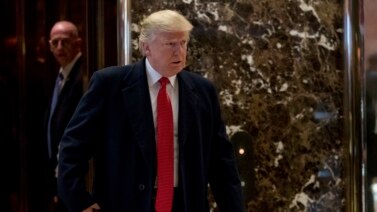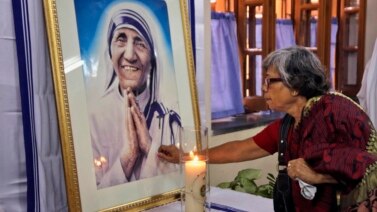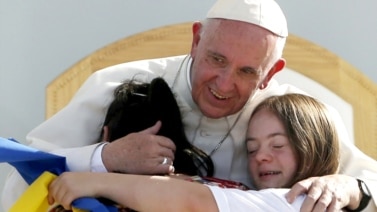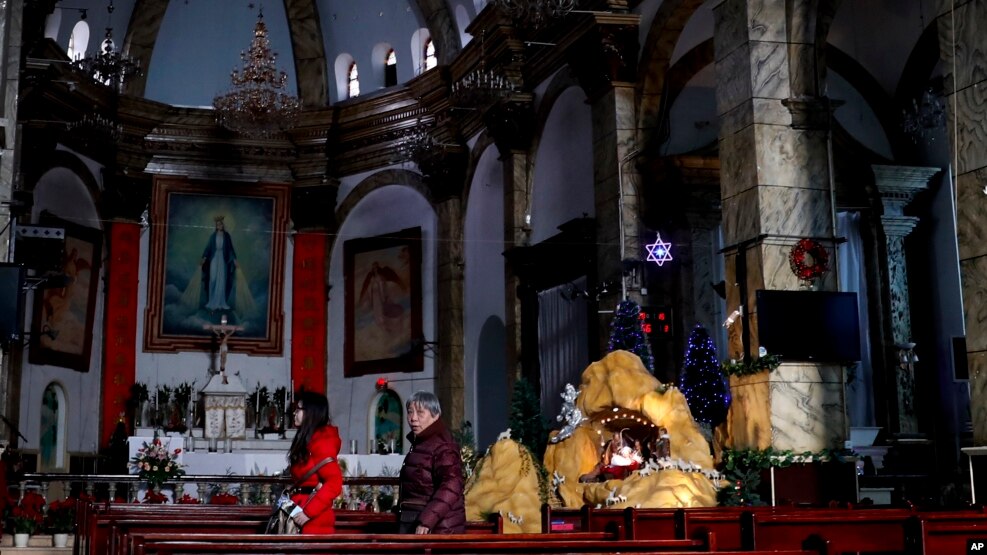
China and the Vatican have held talks in recent months. Observers say the talks could lead the two sides to re-establish diplomatic ties.
But if this happens, the Vatican would likely have to give up its existing ties with the government in Taiwan.
China watchers say this would be a big loss for Taiwan, which currently only has official ties with a handful of small, mostly poor countries.
China considers self-ruled Taiwan as part of Chinese territory, not an independent state with rights to establish foreign relations. The Chinese government bars countries it has diplomatic relations with from having official ties with Taiwan.
The Roman Catholic Church operates from an independent territory within the Italian city of Rome. The territory is called Vatican City or the Holy See. It is recognized internationally as an independent state with its own government.
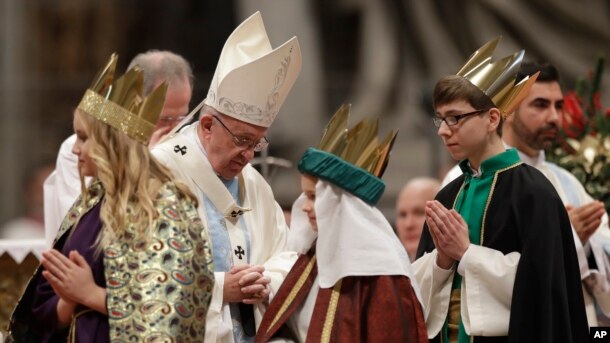
China cut off relations with the Vatican in 1951. This was two years after Communist forces won China's civil war. The end of the war sent the Nationalists fleeing to Taiwan, where they set up a government.
Catholics can now legally attend religious services in China. But they can only attend government-approved churches that are not controlled by the Vatican. China and the Vatican disagree over who should have power to appoint bishops. During talks between the two sides, each has sought more power to choose top church officials.
Over the years, the government has closed religious centers and imprisoned some clergymen, according to reports from China. About one-third of the country's estimated 12 million Catholics worship at underground churches.
Last month, the government's head of religious affairs met with leaders of the official Catholic Church in China. He expressed hope that the Vatican would try to improve relations with the government by trying to adapt to Chinese society.
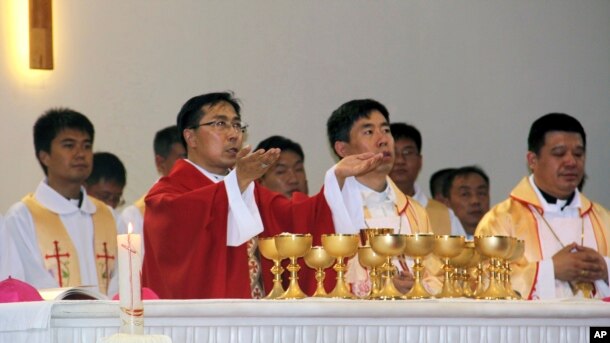
Recent reports from Taiwan and Beijing have described Pope Francis as being interested in establishing relations with China. The Catholic News Agency reported in October that this had become a “major effort of this papacy.”
But the Vatican's current ties with Taiwan could hurt its moves to re-establish ties with the government in Beijing.
A possible China-Vatican agreement was set back because of the activities of a bishop who had been excommunicated by the Catholic Church. The religious leader, who was supported by the Chinese government, helped fill leadership positions in the church.
Taiwan's Vice President Chen Chien-jen recently described the island's current relations with the Vatican as “normal.” “I think (Vatican) relations with Taiwan are continuing to develop in a stable way.”
Chen added that he understands that China is also holding talks with the Vatican on improving ties. He said it is “quite important” for every Catholic to seek to “have the Vatican's blessings.”
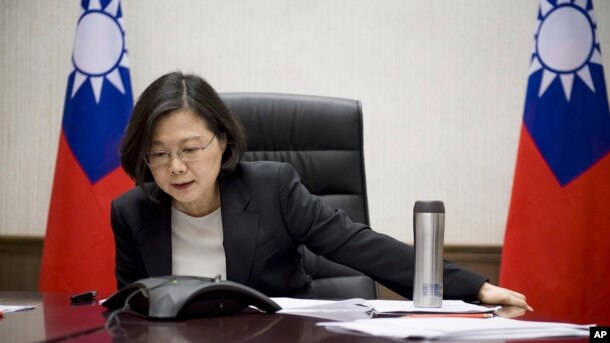
Some experts see Beijing's latest efforts to seek closer ties with the Vatican as a result of worsening relations between Taiwan and China.
Taiwanese President Tsai Ing-wen angered Chinese officials after her election in May by not agreeing to see Taiwan as part of “one China.”
China was also angered when she called Donald Trump after he won the American presidential election. China watchers saw the call as a sign of possible closer ties between Taiwan and Trump's administration.
I'm Jill Robbins.
Ralph Jennings reported this story for VOANews.com. Bryan Lynn adapted it for Learning English, with additional material from Reuters. George Grow was the editor.
We want to hear from you. Write to us in the Comments section, and visit our Facebook page.
Words in This Story
bishop - n. high official in some Christian religious group
worship - v. to show respect for god by praying or attending religious services
excommunicate - v. to bar someone from being a member of the Catholic Church
blessing - n. approval by a person or group to a certain course of action
adapt - v. to change or make changes
